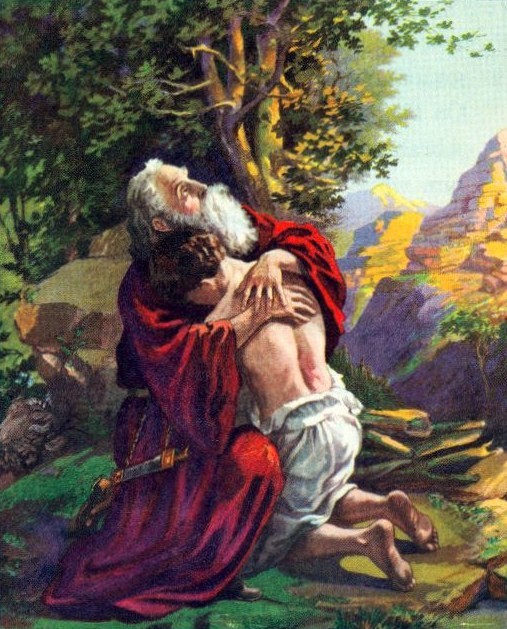Written by Naomi Karp, director of student life at Hillel at UCLA.
This week’s Torah portion, Vayeira, is jam packed with action, comedy and drama. The penultimate event is the Akeda, the binding of Isaac. To briefly recap: God instructs Abraham to take his son Isaac to Mount Moriah and sacrifice him as a burnt offering to show his faith in God. Abraham has his knife in hand when an angel intervenes and God instructs him in the end not to harm Isaac.
I learned this story in kindergarten at Jewish day school. The takeaway when I was little was always about Abraham’s unwavering faith in God. Trust and fear God, and God will intervene and save the day — lesson learned.
I’m sorry, did you just read the same story I did? Abraham was ready to SACRIFICE his SON. In the world I live in, the world where the news every night is plagued by gun violence, sexual abuse, and war — this is simply not okay. If someone today claimed that God spoke to them, much less instructed them to kill their child, we would immediately call the police and put them in jail.
Of course, we should wonder why God asked Abraham to commit such an act in the first place. I’m not so concerned with that today. What bothers me now is the lack of human intervention both in the story we read and in any commentary or teaching thereafter. Why does nobody intervene in this story to ask Abraham what’s up? And why do we not talk about this disturbing piece of text that is foundational to our religion?
If you ran into Abe in the street on his way up to Mount Moriah and he told you of his plans, what would you do? If I’m being truly honest to myself, I would probably do nothing. I would probably judge him and continue walking.
Why are we compelled to judgment and inaction in the face of serious and disturbing issues in our everyday lives? We feel, and are too often taught, that if we don’t have the solution, we shouldn’t ask the question. I would like to suggest a shift in this thinking: it’s not about having the answer, it’s about asking the question.
Just as nobody intervened with Abraham, there are people we meet, people we know, who are struggling through each day with serious issues. We should not be shamed by the stigma of “unspeakable” issues like depression, drugs or suicide, or even less serious and equally plaguing challenges of stress, schoolwork, and deciding what we want to do with our lives. We do not need to be experts on these issues, but we have the power are obligated to ask important and urgent questions. There is immense power in the questions we ask, and in the way we listen and seek to understand what another person is telling us.
If there is anything you take away from this new perspective on the Akedah, I hope that you will ask your friends how they are doing. When you run into someone on campus, don’t just say “hey what’s up?” and continue on your way. We all can sacrifice five minutes to check-in with each other and hear what we’re struggling with, what’s exciting us, and how we can enrich each others’ lives.
_____________________
This article is part of Ha’Am’s new Friday Taste of Torah column. Each week, a different UCLA community member will contribute some words of Jewish wisdom in preparation for Shabbat.


הייתי באמת אוהב את זה !! תודה על ההזדמנות , זה יהיה נפלא !
אדון אלהי יצחק אברהםוישראל תן לזה להיות ידוע היוםשאתה אלוהים אנו ofter את חיינוכקורבן חי לטהר אותנו באש קודש האש הקדושה שלך